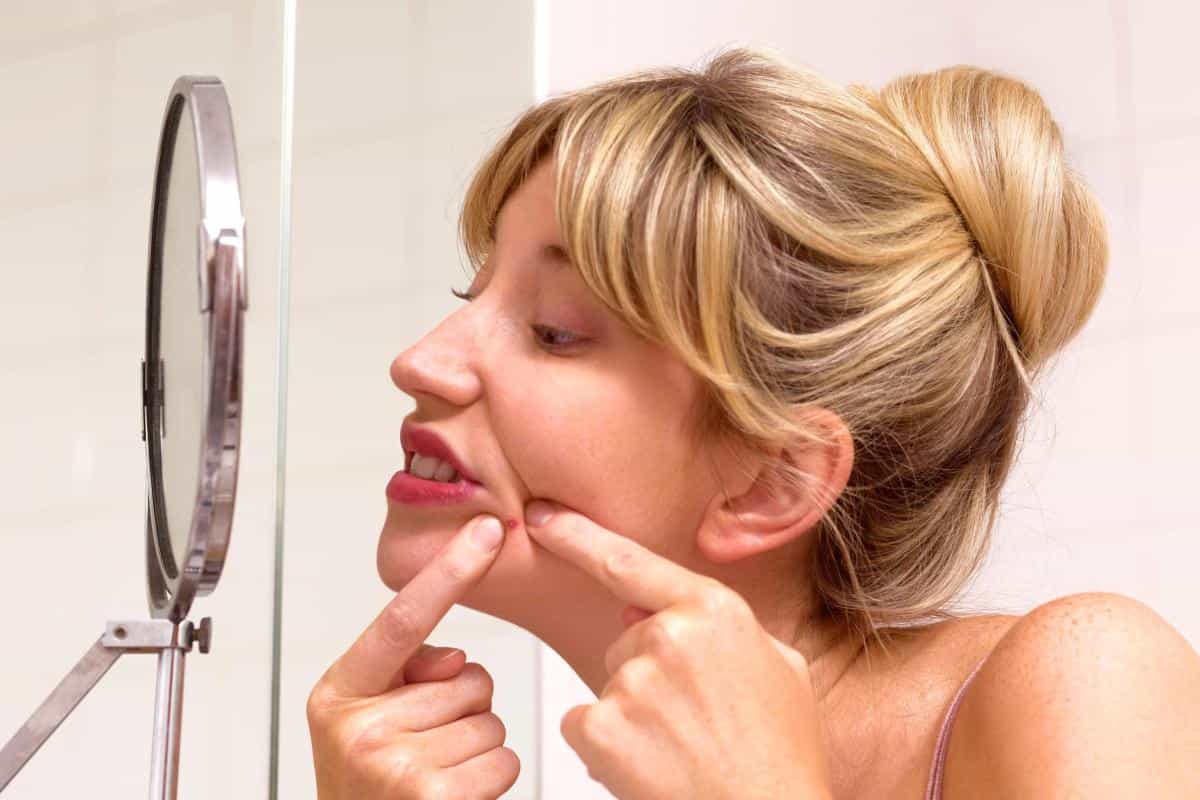It’s bad enough having acne as a teenager when everyone else has it too. But suffering from it as an adult can feel even worse. Unsightly acne can be debilitating for adults, causing stress, low self-esteem, and in extreme cases insecurity severe enough to interfere with daily activity.
If you suffer from adult acne, you’re not alone: an estimated 50% of adult American women have the same problem. And the good news is that you can improve your acne greatly, and sometimes get rid of it altogether, with natural changes to your diet, supplements, and stress management.
Balance Your Hormones
Women often experience acne around the mouth and jaw a week or two before their period begins. This is generally due to the increase in progesterone, which is highest at this point in the menstrual cycle. Hormonal acne can also be caused by an increase in testosterone or androgens, or by excessive estrogen. This can occur because of natural estrogen fluctuations, or it can be influenced by false estrogens, which often come from environmental factors like plastics or birth control. Reducing the number of false estrogens you come in contact with can dramatically improve adult acne.

If you suspect your acne is hormonal, a doctor can do a blood test to determine the type of imbalance that is causing it. And there are several supplements that can naturally help balance your hormones and reduce your acne.
Control Your Cortisol
High levels of cortisol, also known as the “stress hormone,” can significantly increase adult acne. You can manage your cortisol by managing your stress levels, practicing meditation, getting enough sleep, and spending some time outside each day. Cortisol production in the body can also be balanced by taking vitamins B5, B6, and C.
Take Your Vitamins
Adult acne is directly related to the overall health of your skin, which can be improved by taking the right vitamins. Vitamin E, whether taken orally or applied topically as oil, will help smooth your skin, reduce scarring and hyperpigmentation, and increase elasticity. Vitamin C can be applied topically as a serum to reduce acne, redness, and roughness. And the omega-3 fatty acids in fish oil will reduce acne and help keep your skin healthy and firm
Watch Your Diet
Diet is one of the most important factors in the health of your skin and can be blamed for a lot of adult acne. Foods that cause spikes in blood sugar, such as refined sugars and simple
carbohydrates, will often cause acne because they cause your insulin levels to spike. If you eat a lot of bread, pasta, alcohol, and sugary treats, try cutting back and see if your acne improves.
Dairy, particularly low-fat or fat-free milk, is also associated with acne in adults. This is partly due to the high level of sugars in most milk and partly due to the presence of hormones. Try adding yogurt to your diet instead of milk, as it is less likely to cause acne flare-ups, or switch to low-sugar nut milk.
Rule Out Food Allergies
Rashy acne that is accompanied by stubborn patches of dry skin, flushing, or redness, may be caused by a food allergy or intolerance, especially if you also have other symptoms. Food allergies can be difficult to self-diagnose, so before you cut anything out of your diet, make an appointment with a nutritionist, and explain what you’ve noticed. They may be able to help you pinpoint the root of the problem.
Improve Your Digestive Health
Poor digestion or bacteria imbalances in your stomach can often cause acne in adults. This is more likely to be the problem if you also suffer from indigestion, constipation, or frequent yeast infections — they all come from the same place! You can improve your digestive health by taking a probiotic supplement, or by eating a serving of probiotic foods such as yogurt (with active cultures), kefir, sauerkraut, or pickles once a day.























